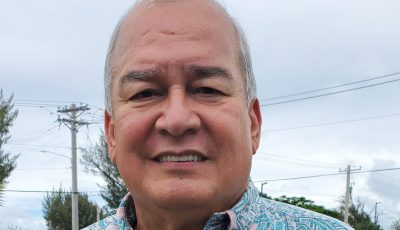Creation of the elite
The CNMI has created the elite versus non-elite class in wages and salaries. We now have the 25 percent highest paid employees versus the majority hauling home poverty income biweekly.«
The elite group has more money than those who trail behind in poverty income land the latter picking bread crumbs off the floor.
Why would we want a class of “haves” and “have-nots?”
Nearly 15,000 are in the poverty income group. What’s the cause of this many people stuck at this level? Is the hold back funding—single or combined resources—to which there may be issues with shared cost? Is it the lack of training and education to upgrade the skills of the local workforce, thus the delay in concurrent salary increases? But this aspect would seem a natural part of the process, isn’t it? Anyway, what’s the real issue in the continued imposition of poverty income for these many workers?
With poverty income families are forced to limit expenses to primary family obligations. It includes the first family home, food, car, utilities, medical care and other necessities. After these there’s basically nothing left for other family needs.
You can’t engage in other family outings like taking the troops to the movies or stop somewhere for a sandwich. Poverty income limits everything to basic needs and obligations as to sacrifice casual family outings.
What’s my point? We need better answers than all the speculative queries raised herein. I challenge so-called leadership to resolve the issue forthwith. Or is the NMI suffering from leadership vacuum?
Poverty: What’s the root cause of this deepening mess and has this administration done anything concrete to ease family hardship in households throughout the archipelago?
It revolves around a single word most politicians have spouted with ignorance: economy. It is said that a healthy economy lifts all boats in the harbor. How sad that most boats are still stuck in the mud downstairs, though the tide has shifted.
Hope history isn’t priming to repeat itself. Let the chapter I closed years ago stay shut. Enough of staring at boiled taro and salt for dinner or gulping faucet water for breakfast before heading to class in the morning. Enough of the wraths of abject poverty!
It’s hard telling families caught in this hardship otherwise. They know their school-age kids head to class hardly equipped with basic needs like breakfast, school supplies and decent clothing. They sigh daily praying for help, any help.
Unstated: It’s the perennial issue of an uncertain economy that moves north and south happily and unpredictably throughout the course of the year. Eh, it still is the economy, stupid! Did you get that, pal?
Appalling the perennial attitude knowing the beast yet we treat it like some filthy leper who walks by under our nose successfully each trip. It must be policymakers’ conundrum founded on ignorance or sheer negligence or both.
Then they return to acknowledge in grand redundancy that employees are still earning poverty level income. When do you put your best foot forward to resolve the issue? You already have an idea so what’s your next plan of action?
The NMI isn’t necessarily at its best from an organizational standpoint. We heard the economy is on the uptick. Was an effort made to identify which sector improved and would it do better if we rally behind strengthening it? Must secure a sense of purpose to morph into knowing what’s in your bag at any given time.
Leadership: Delegate Kilili has reached an agreement with the House Nutrition Subcommittee chair on Supplemental Nutrition Assistance Program to include the NMI in the program. It stands a good chance when national Democrats take over the U.S. House of Representatives this midterm election or January.
Kilili said he’s doing the negotiations a year in advance, adding that food stamps here has doubled where some 3,610 families will be eligible by October or next month. He’s infused some $32.5 million into the 2014 Agricultural Act.
He pointed out plans by the NMI government to cut benefits and push more families out of the program this year. “I must get the NMI into SNAP” via federal law to make its implementation here mandatory, he noted.
The NMI and Agriculture Department took their time ramping up the pilot program, thus the delay, Kilili noted. “There’s still some $22.5 million in unspent funds for 2014.” Grandly admirable the courageous ideological assertion to cut dependency on food stamps among the indigenous people.
But if Guvana Raffet hasn’t improved the strength of the family purse, wouldn’t food stamps denial deepen familial hardship?



























